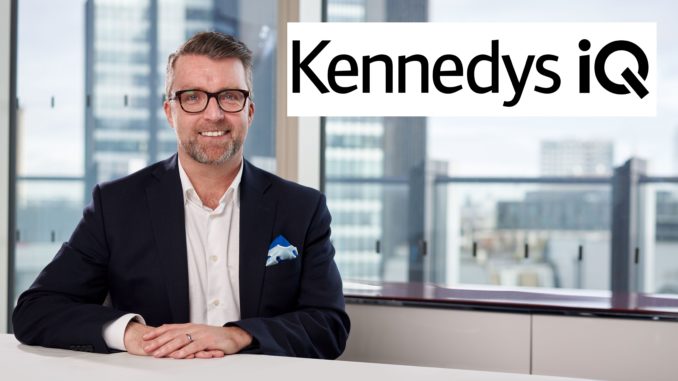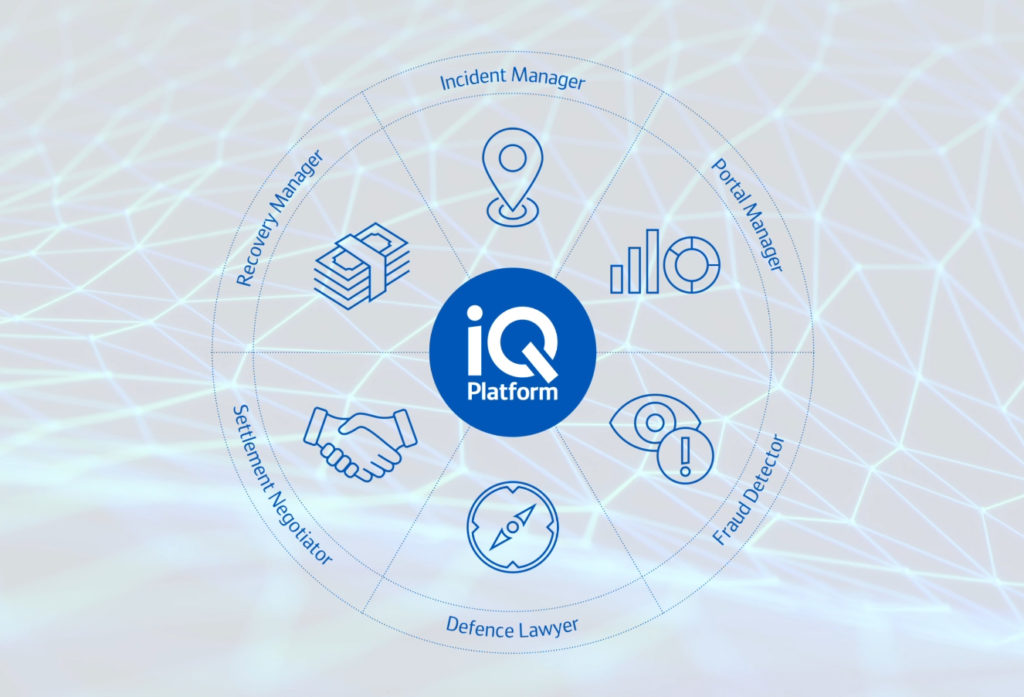
Global insurance-focused law firm Kennedys is to spin out its software development group to form a new corporate entity called Kennedys IQ, in a move that will allow the team to grow more rapidly and expand their offering.
For several years Kennedys has been developing legal tech software with a focus on the insurance sector, with its landmark Klaim system a case in point (see earlier feature). However, they have now built six distinct tools (see more below) and feel the time is right to create a new corporate structure to allow the business to expand and to better incentivise its developer staff.
Richard West (pictured above) partner and head of the innovation group, and Mike Gilpin, formerly the firm’s Director of IT but who is now moving over to the IQ group, told Artificial Lawyer that a traditional partnership structure wasn’t the best system for what was in effect a software company.
It therefore made sense to spin it out into a separate corporate structure, at present wholly owned by members of the Kennedys’ LLP, but putting in place a profit share incentive system to reward what will initially be a team of about 30 people. For now, they will not be looking for external investment in the new tech platform, they added.
They will also not be spinning it out too far, the IQ group will in effect be the tech ‘brain’, that very much remains connected to the huge legal knowledge base of lawyers at Kennedys.
Gilpin said: ‘Clients are not entirely comfortable procuring tech from a law firm. [They ask themselves] are they there for the long term? This creates a completely sustainable and profitable business.’
West added: ‘You can’t attract the right people or incentivise them in an LLP [for a software business].’
I.e. in a partnership structure, at least one that didn’t want to become an alternative business structure and have tech experts permitted to become equity partners, there isn’t an easy way to reward people who are creating new software that could have significant value. That said, the staff will not have shares in the new company, at least not yet.
The move shows how serious they are about the IQ group not just being a sideline, but one that is really becoming a significant business by selling its software to the global insurance market.
The firm also told Artificial Lawyer that selling software into the insurance sector was not the limit of their ambitions. Gilpin noted that they could also look at aspects of ‘business process commoditisation’ and highlighted the work the Big Four are doing in the ALSP/LPO area.
They also hinted that a new service line around consulting on technology could develop that was run through IQ.
Interestingly, West noted that they could perhaps sell some of this software to other law firms, although he stressed that this was not the primary goal.
The IQ team counts several of the firm’s senior people. For example, it includes Karim Derrick, who is moving from Head of R&D to Product and Innovation Director inside IQ.
While the new company’s governance group comprises managing partner Suzanne Liversidge, Richard West, Mike Gilpin and Karim Derrick, Rosie LeGros and Jo Woods, Kennedys’ Directors of Business Development and Finance, respectively.
West added: ‘This will become a much larger business than it is today. We are not aiming for external investment as it’s already self-funding. We are expecting growth.
‘Our over 1,000 lawyers will focus on the clients and legal knowledge, IQ will do the AI and machine learning work,’ he added.
In terms of the actual tools currently available for clients to use, there are the following – with more to come:
- Incident Manager,
- Fraud Detector (formerly Ki),
- Portal Manager,
- Defence Lawyer (powered by the award-winning KLAiM system),
- Settlement Negotiator (formerly Cybersettle) and
- Recovery Manager
In effect it’s an entire suite of software to handle multiple aspects of legal work for the insurance sector, from helping to manage the claims defence process, to tapping the data from claims to support fraud detection and areas such as cost/settlement prediction.

The software will be sold on a subscription model, in a way that is similar to other law firm tech groups, such as that of Allen & Overy’s AOSphere.
Conclusion: this is a major step for Kennedys. They’ve been moving to this point for many years after creating their own software internally. What this move does is give the IQ team the freedom and flexibility to grow rapidly, with an incentive system to both retain and hire in more tech talent.
It’s not the first law firm to create a separate tech development company outside of the partnership, and this perhaps underlines that although law firms want to build and sell technology to their clients, an LLP is not necessarily the best system to do it through.
The spin out is a sensible solution that will also help to generate profits for the partners of Kennedys. And, the clients should benefit from having a tech group 100% focused on meeting their needs. All in all a win/win scenario.
Perhaps the only question now is will all other law firms that are building their own software solutions for clients also spin out those teams into separate entities?